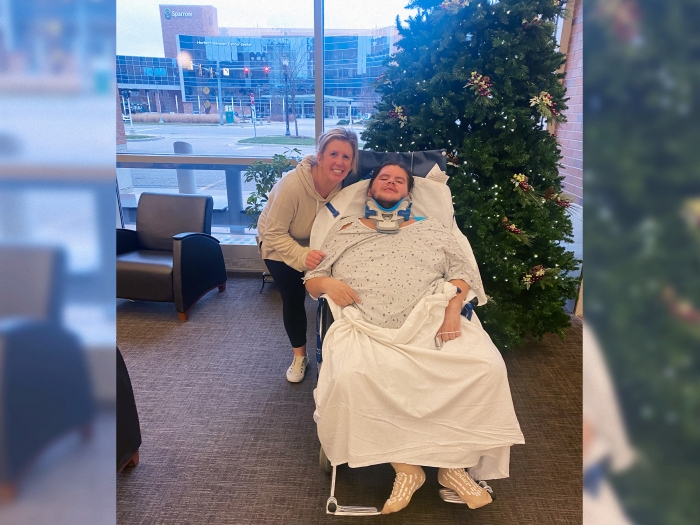Dance-off with Detroit Tigers Paws and autograph signing by U-M football standout Mike Martin
Author |
Join one of the largest single-day blood drives on the University of Michigan campus and register as an organ and tissue donor during Be a Hero at the Big House, 8 a.m.-5 p.m. Nov. 11.
High above the University of Michigan football field in the Jack Roth Stadium club, the event, hosted by Wolverines for Life and others, is the half-way mark in the 37th annual American Red Cross Blood Battle against Ohio State University.
Mike Martin, an NFL defensive end who played Michigan football from 2008-2011, will sign autographs 11 a.m. to 1 p.m. With games, giveaways, food and a mascot dance-off with Detroit Tigers Paws, the day is a celebration of life-saving donation.
More than 3,500 very sick Michigan residents are waiting for organ transplants and a new shot at life. Thousands of others need tissue to relieve their pain, heal their wounds and help them see again.
“Organ donors have a unique ability to help,” says John Magee, M.D., director of transplantation at Michigan Medicine. “Every transplant surgery is the result of a special pairing of a donor and the person who received their gift. Although every patient is different, most share a common refrain in recovery: None would be alive without the selflessness of others.”
Among those who’ve received the gift of life is Jim Plocki, strength and conditioning coach for the University of Michigan Department of Athletics.
Last fall, he was diagnosed with acute myeloid leukemia – a “gut-wrenching” experience for him and wife Bev Plocki, head coach of U-M gymnastics.
Doctors said a bone marrow transplant would add considerable odds of beating it, but only one person on the bone marrow registry, a 26-year-old living abroad, was a possible match.
"Luckily my brother came through for me,” says Plocki who has spent 30 years making U-M athletes bigger, faster and stronger. “To be a donor is easy. Sign up, do a swab and if you’re needed they’ll call you. It can make a difference in saving someone’s life.”
Every three minutes someone is diagnosed with a blood cancer and donors are needed to be someone's cure. Young bone marrow donors are particularly important, as donors ages 18 to 44 provide the best chance of a successful transplant.
If you don’t already have a red heart emblem on your license or ID, attend the Be A Hero event to sign up as an organ and tissue donor.
To make an appointment for a blood drive in the Blood Battle, Oct. 29-Nov. 21, call 1-800-RED-CROSS or make a donation appointment online at www.redcrossblood.org. Enter sponsor code “GoBlue” for a list of all drives on the U-M campus.

Department of Communication at Michigan Medicine





